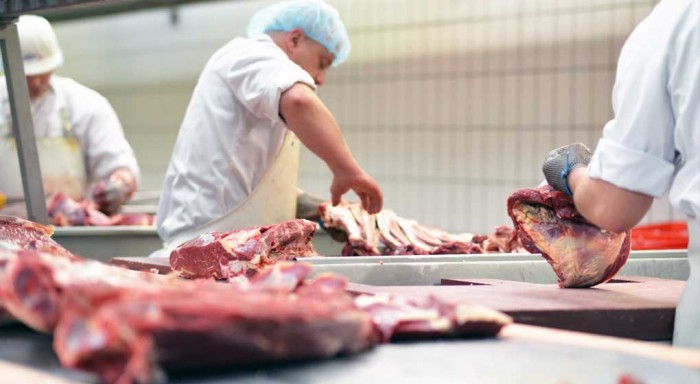Industry organisations have welcomed the inclusion of butchers on the Migration Advisory Committee’s (MAC) recommended shortage occupation list (SOL).
The MAC provides advice to the Government on migration policy, ahead of the introduction of a points-based immigration system on January 1, 2021. The SOL shows which occupations, amongst those eligible for the skilled worker route, are facing a shortage of suitable labour and where it is sensible to fill those shortages with migrant workers.
The MAC’s latest recommendations for sectors to be added to the list include butchers, meat hygiene inspectors, vets, although, as expected, farm workers have been excluded from the list.
The British Meat Processors Association (BMPA) and the Association of Independent Meat Suppliers (AIMS) welcomed the recommended addition of butchers to the list.
The BMPA said: “This would be a major boon to meat companies where there is clear evidence of staff and skills shortages which could be filled by overseas workers.
“If introduced it would give meat processors much more flexibility to fill vacancies and maintain production. But it would also provide an interim staffing solution until new training initiatives, announced by Boris Johnson, are implemented and (hopefully) begin to yield more UK candidates for traineeships in the industry.”
The NPA joined the calls from the meat processing sector for butchers to be added to the list in its submission to the MAC.
NPA chief executive Zoe Davies said: “We were very clear in our submission to the MAC that butchers needed to be on the list – otherwise the UK would find itself in a position where it is unable to attract sufficient labour to process the meat we produce. We are pleased the MAC listened to us and others within the meat and livestock sector.
“We also argued that farm workers should be on there as many pig farms are reliant on EU workers.
“With the end of EU free movement in the three months’ time, it will now be important for pig businesses to retain existing EU labour in the short-term, while the NPA will continue to work across the pig supply chain and with other industry organisations to ensure we can attract a sustainable work force into the future.”




